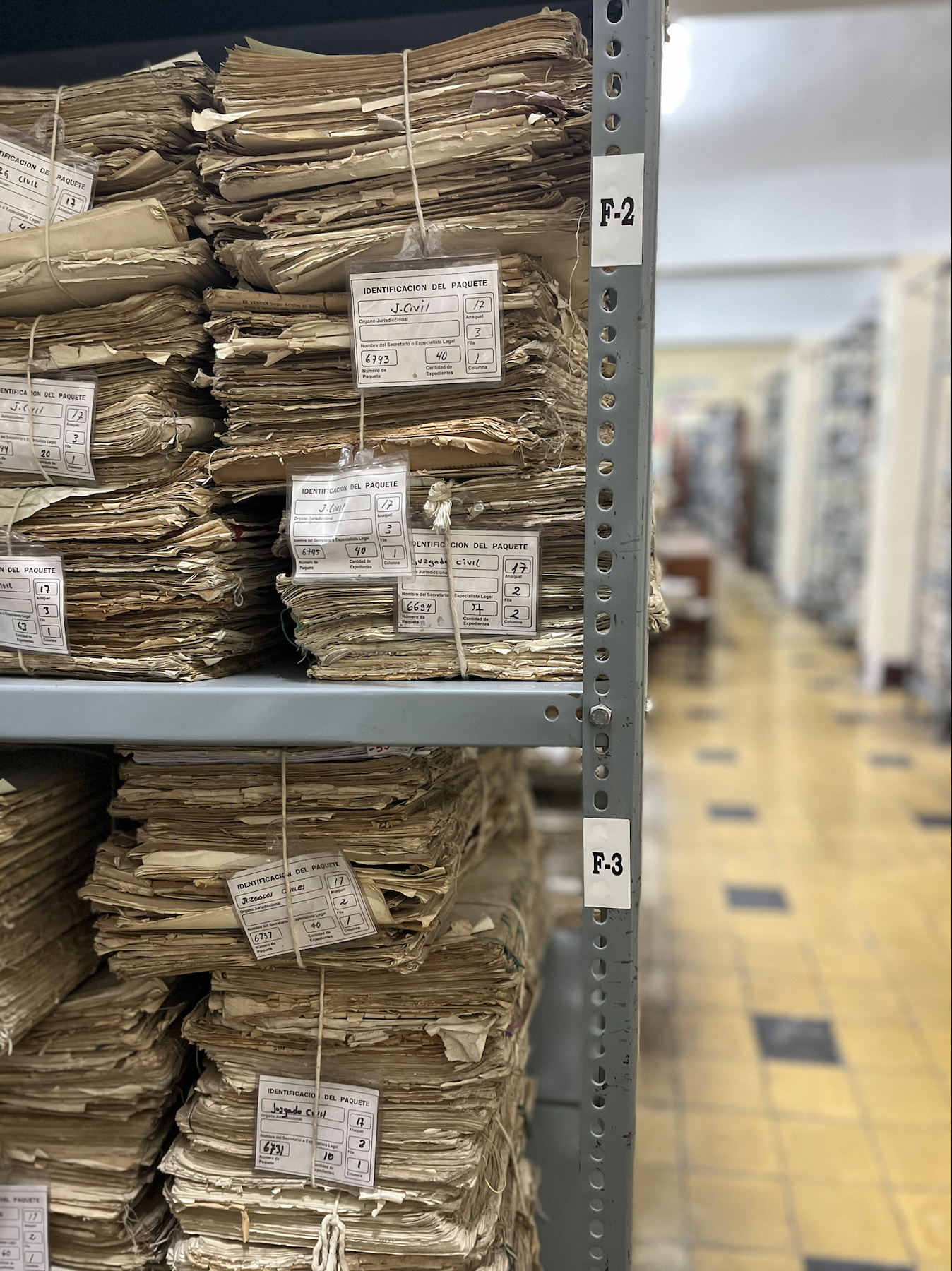
Legal norms are an important determinant of the way cities develop. How do people acquire land? What is an owner entitled to do? What are the duties of an owner to his or her neighborhood? Much of the research on these matters focuses on the text of the law, the legislation, the codes of norms. However, the study of law must consider not only the text but its actual application by people who read, interpret, apply and sometimes violate the text of the law. This approach becomes critical when considering cities in Latin America where most of their growth is informal and sometimes outside the formal regulation of property law, which is the phenomenon that I intend to explore in my doctoral research. A first step of this project is a review of archival information of actual legal transactions that occurred in certain neighborhoods of the city of Lima, Peru which are recorded in the national public registry of land property. 19th century and early 20th century records of the Peruvian public registry of land property is an archive currently used by lawyers in disputes over land interests. Historians have seldom used this material as a source despite it being a useful depiction of the application of legal institutions on the everyday lives of people and despite being to a large extent georeferenced. Thus, this project will allow me to make available georeferenced “legal data” of land property transactions for its eventual use both in my own research and in a workshop or seminar to be taught at Harvard.
Researcher: Jose Carlos Fernandez
Keywords: Property, Cities, Archives, History, Associations, Peru, Latin America